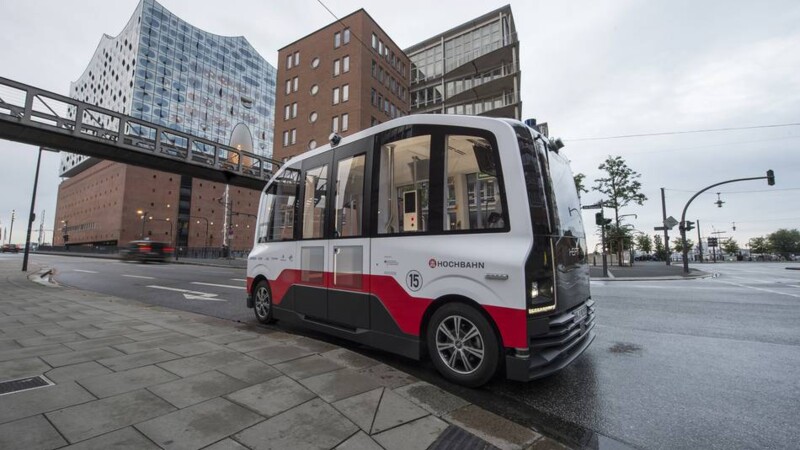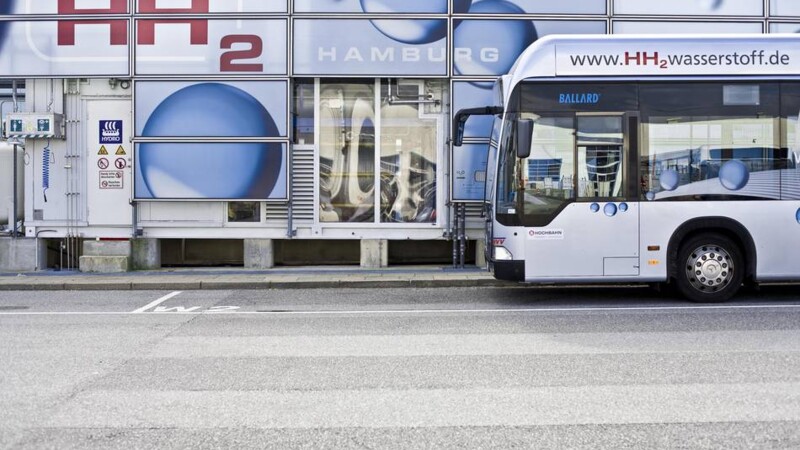Continental has had close links with Hamburg since it acquired the Phoenix plant in Harburg in 2004. Commenting on the agreement, Michael Westhagemann, Senator for Economic Affairs, Transport and Innovation, said: “We are delighted that more and more technology companies are opting for Hamburg as an innovation location to shape the mobility of the future. Continental is a key partner in the deployment of intelligent transport systems with whose expertise we aim to test out new solutions for improved safety, greater efficiency and reduced emissions.“ Among the envisaged projects is a plan to improve road safety. This involves a collision warning system to protect particularly vulnerable road users. Using mobile edge computing, a cloud-based calculation of potential collisions with road users such as cyclists, pedestrians and e-scooter users is to be carried out at black-spot crossings in Hamburg and a warning message sent wirelessly in dangerous situations
The City of Hamburg signed Monday (October 21, 2019) a partnership agreement with Continental on the development of urban mobility during the “World Congress for Intelligent Transport Systems, underway in Singapore until October 25, 2019, and as Hamburg gears up to host the next ITS World Congress. The agreement foresees joint ITS projects to improve the safety of vulnerable road users and more efficient use of parking spaces. The ITS World Congress gets underway from October 11 -15, 2021 at the CCH and the trade fair halls marking a milestone in the ITS Senate strategy through to 2030.
Collision warning system
Improved parking
The agreement also foreseees more efficient use of parking spaces, which present one of the least optimized fields in urban environments. Motorists in Hamburg spend an average ten minutes searching for a parking space, which accounts for up to 40 per cent of inner-city traffic and causes pollution. Various solutions such as the sensor-based, in-vehicle detection of available parking spaces, navigation to the nearest parking space or paying for parking spaces both on and off the street, will be examined and implemented, if feasible. The service may also identify e-charging stations, parking spaces for disabled people or other special user groups.
Continental’s Hanseatic innovation centre
Continental develops pioneering technologies and services for sustainable and connected mobility of people and goods. Founded in 1871, the technology company offers safe, efficient, intelligent and affordable solutions for vehicles, machines, traffic and transportation. In 2018, Continental generated sales of EUR 44.4 billion and currently employs more than 244,000 people in 60 countries and markets. The former Phoenix plant, which was founded in the south of Hamburg in 1856, has been part of Continental since 2004. It manufactures high-quality black and colour rubber compounds, which are turned into products such as tyres and seals. Continental recently built a state-of-the-art innovation centre in Hamburg where innovations for the industry of tomorrow will be produced in future. Meanwhile, the company has forged close partnerships with Hamburg Innovation, Tutech Innovation GmbH and the organization responsible for business development in Hamburg.
js/sb/pb
Sources and further information
More
Similar articles

HEAT ends first test phase successfully
